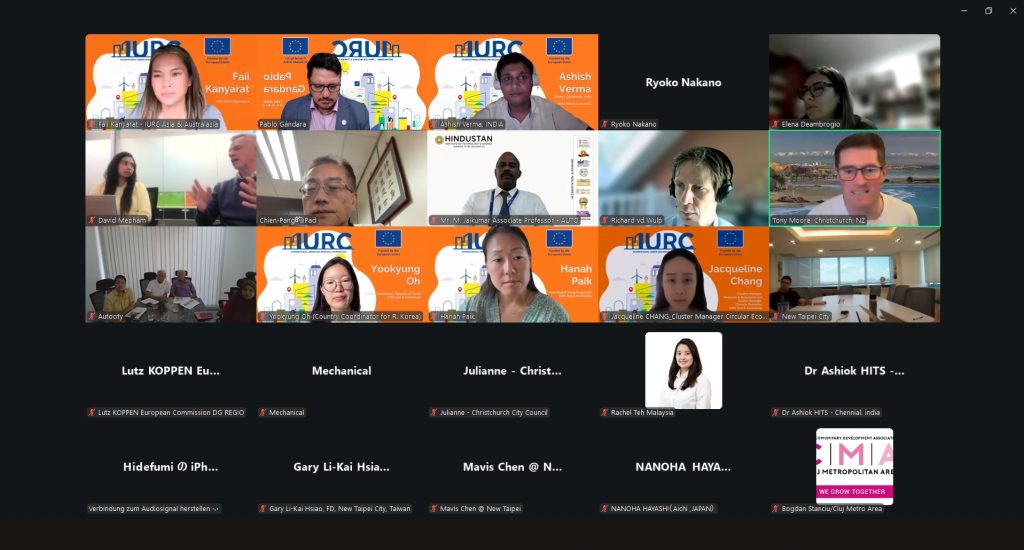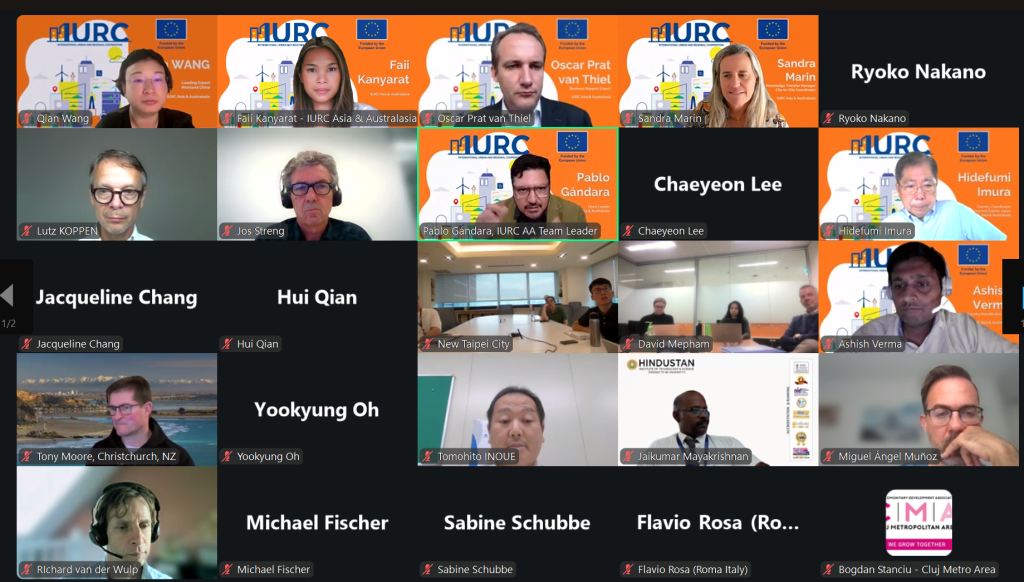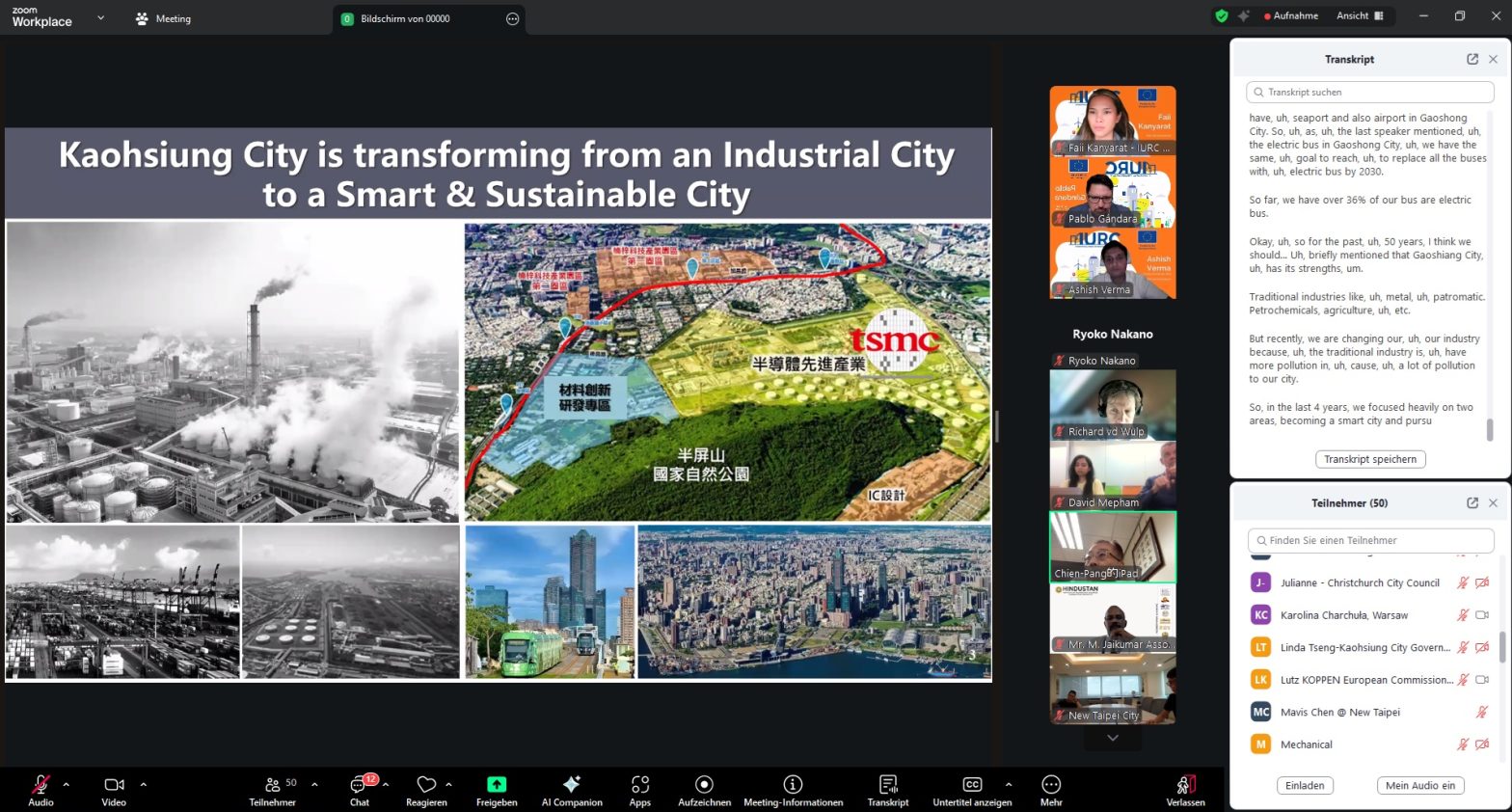The first two online thematic cluster sessions on mobility and transport were held this week, featuring presentations from 6 cities. The sessions counted over 100 participants from IURC pilot cities in the European Union, Australia, New Zealand, Korea, Taiwan, Japan, Malaysia, Singapore, and India. The initial phase of the IURC thematic clustering approach (September-October 2025) helps pilot cities and regions to get an overview of the 61 cities and 29 regions from the EU, Asia, and Australasia participating in the programme. During this online phase, participants identify potential peers to engage with during the upcoming in-person meetings 2025-2027. Both sessions were moderated by IURC Team Leader Pablo Gándara, who presented various resources and networks relevant to urban mobility, including the IURC YouTube channel, the European Urban Initiative (EUI) PORTICO portal, DG REGIO and DG MOVE websites, the EU CIVITAS Initiative, the EIT Urban Mobility Knowledge Hub and Marketplace, and the POLIS network.
Rotterdam’s Urban Challenges and Initiatives
Jos Streng and Richard van der Wulp presented Rotterdam’s urban challenges and initiatives, highlighting its dense population, port city status, and efforts in traffic safety, public transport, and inclusiveness. They expressed interest in collaborating with other cities, particularly on automated driving, shared mobility, and urban logistics, and emphasized the need for efficiency in the IURC program. Richard and Jos also referred to past IURC engagement, especially with Korea.
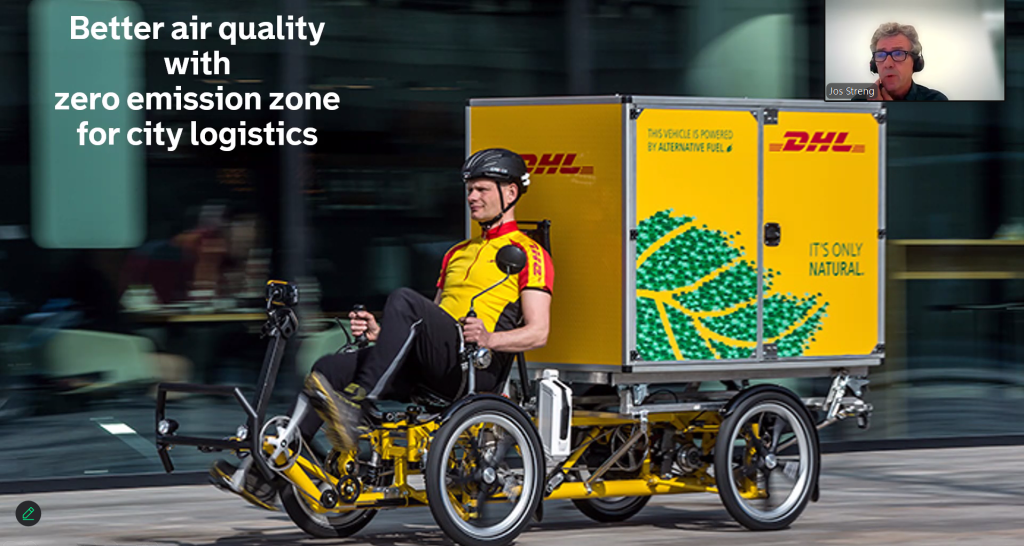
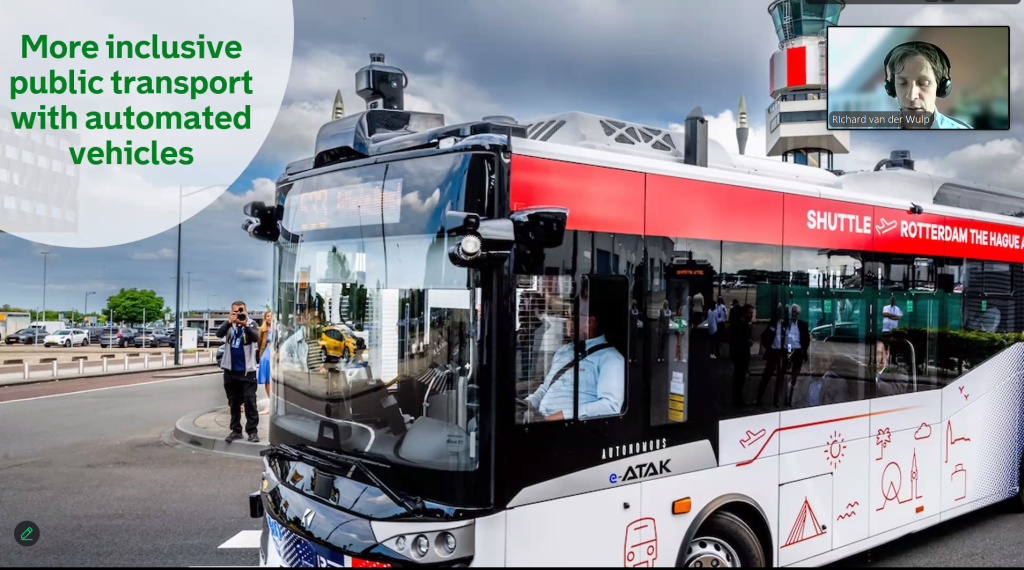
Japan: Osaka’s Autonomous Buses and Air Mobility
Mr INOUE Tomohito presented on autonomous buses and advanced air mobility initiatives at the Expo 2025 Osaka Kansai, highlighting the need for improved transportation in the city due to population decline and an aging society. He explained the autonomous bus system, which uses 3D mapping and laser technology for navigation, and discussed the Expo’s role in demonstrating new technologies and systems for society. Inoue also introduced advanced air mobility efforts, including drone demonstrations and research into environmental development, to enhance social acceptance and practical use of autonomous driving and advanced air mobility in Osaka.
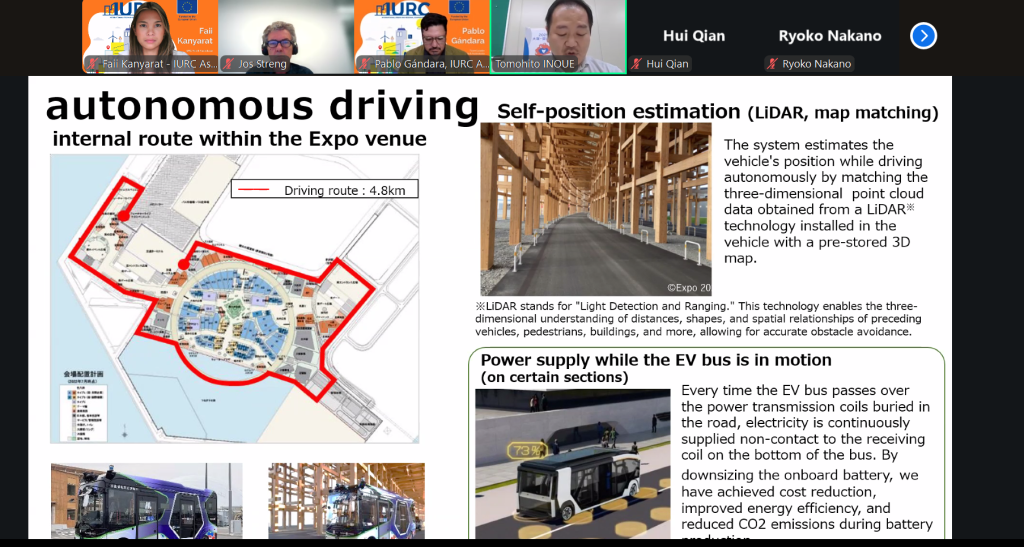
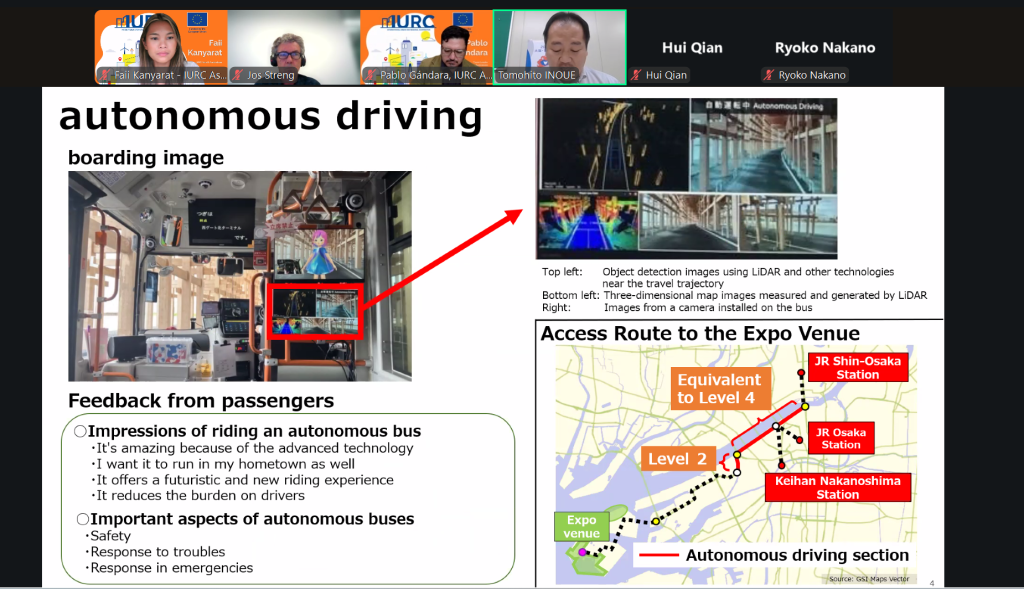
India: Chennai’s Low-Carbon Transport Transition
The session included a presentation by HITS-Prof. Dr. JAIKUMAR, representing the Great Chennai Corporation. The presentation highlighted Chennai’s efforts to transition to low-carbon transport solutions, with a focus on electrification, improvements to public transport, and sustainable urban planning. The city aims to reduce CO2 emissions by 570 metric tons annually by 2050 through initiatives like electric bus adoption, renewable energy integration, and the development of a robust EV charging infrastructure. Challenges such as high upfront costs for EVs, limited driving range, and coordination among policy agencies were acknowledged, with strategies like “avoid, shift, and improve” proposed to address these issues. The presentation concluded with the concrete delivery of a biogas plant on the HITS CAMPUS, based on a collaboration with the City of Trier to implement waste-to-energy projects.
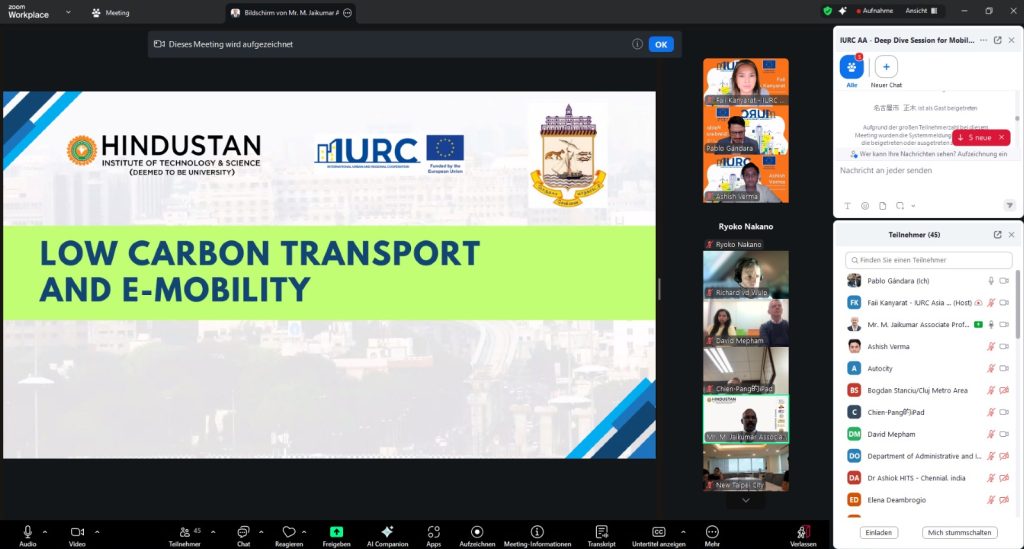
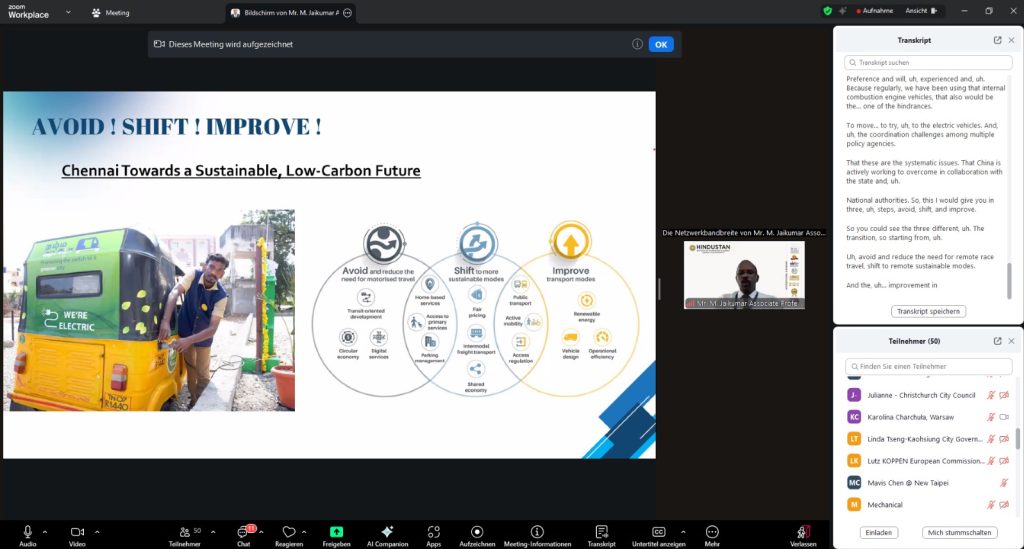
Taiwan: Kaohsiung’s Smart Mobility Systems
Dr. Chien-Pang Liu, Deputy Director-General of the Transportation Bureau, introduced Kaohsiung City’s transformation pathways from an industrial city to a smart & sustainable city. He referred to the main economic sectors, including the semiconductor manufacturing ecosystem. He then introduced relevant initiatives dealing with Mobility as a Service (MaaS) and intelligent transportation systems (ITS), including their public transit integration system, QR code boarding, and AI-controlled traffic signals that have improved vehicle speed by 20%. The Rural Shared Mobility Service implemented in Kaohsiung (involving local drivers and vehicles in rural areas) was especially interesting during the discussion round.
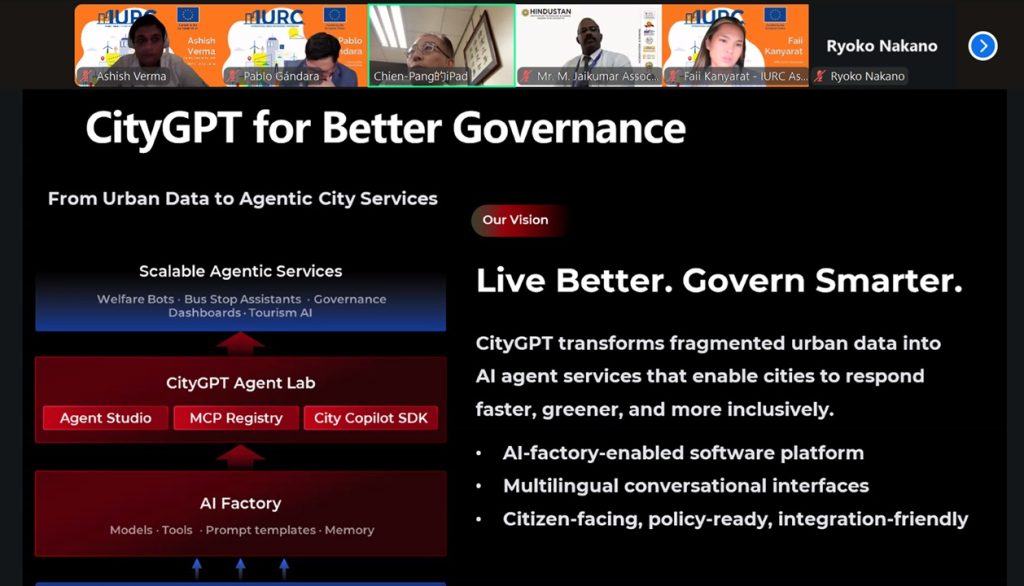
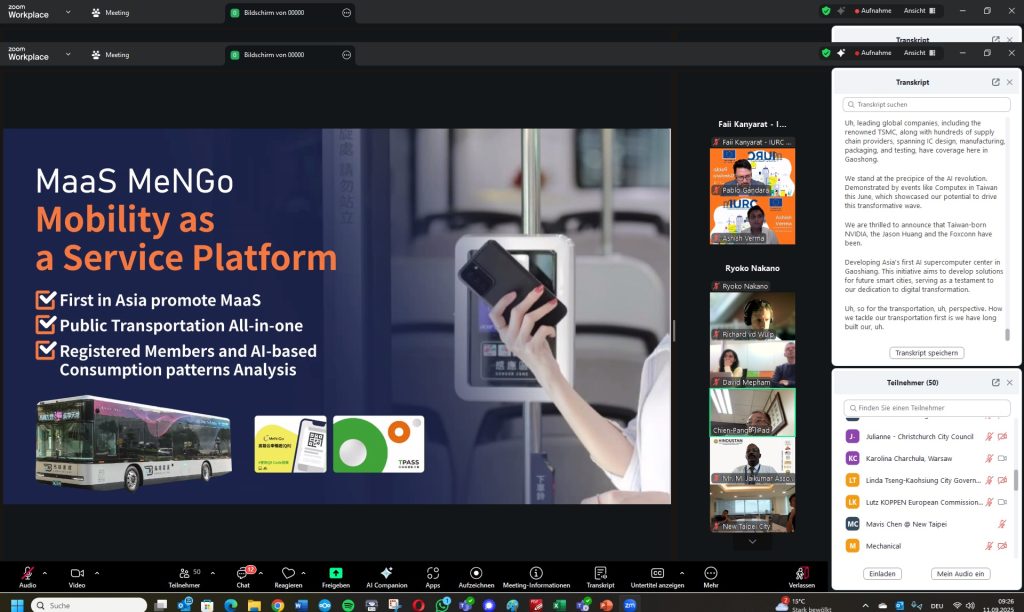
Italy: Torino’s Mobility Testing Sites and Business Engagement
Elena Deambrogio, Head of the Open Innovation Unit at the City of Torino, introduced the key data of Torino city, including the education and start-up ecosystem. She focused on the city’s focus on sustainable and inclusive urban mobility, highlighting their 35km Smart Road-testing area, autonomous mobility projects, and commitment to becoming climate neutral by 2030. Torino wishes to exchange best practices among living labs, develop joint pilot projects on public transport, logistics and smart infrastructures, and offer pathways for startups and enterprises to scale in global ecosystems. Elena explained Torino’s approach to engaging businesses through pilot projects, offering financial contributions, testing grounds, and access to technology infrastructure.
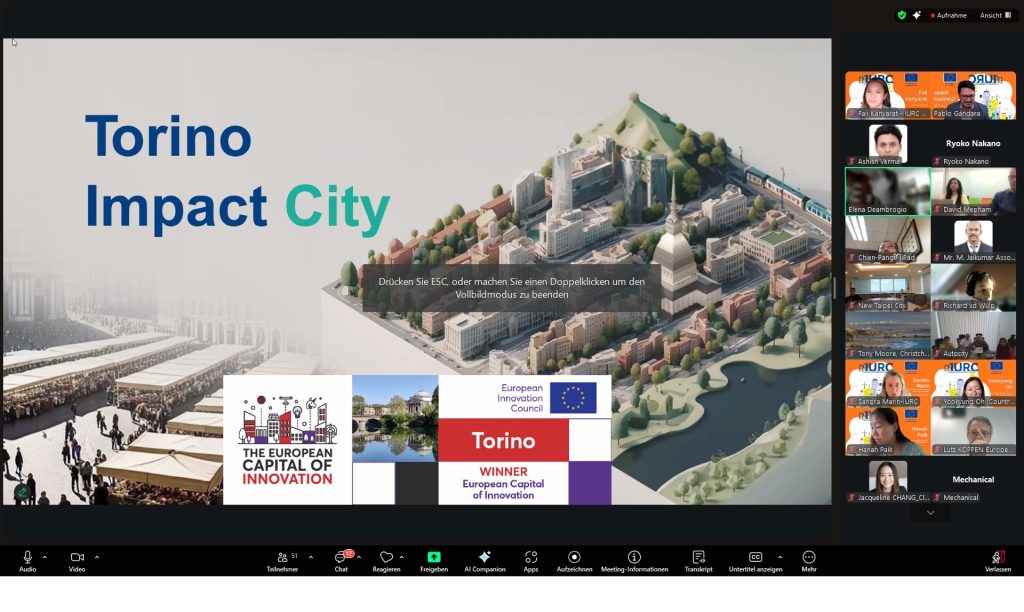
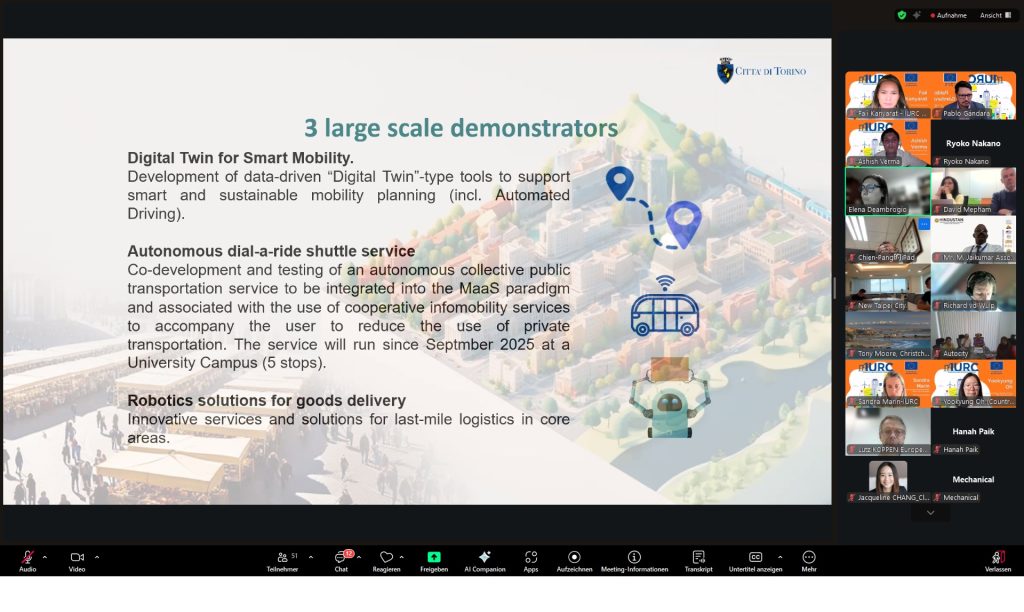
Malaysia: Seberang Perai’s Integrated Pedestrian Walkway
Mr. Chew Eng Seng from Seberang Perai City Council and Mr. Gary Teoh from Auto City Group presented on their integrated pedestrian walkway project in the “Auto City” area, focusing on enhancing mobility, safety, and family-friendly design. Auto-City is a lifestyle & commercial hub in Juru, Penang, with a high daily visitor flow, traffic congestion, risk and dependence on private cars. The integrated pedestrian walkways and the green mobility (e-vehicles) within the Auto-City were two best practices explained. They wish to exchange with other EU-AA Cities about Walkable Cities and Integrated Pedestrian Walkways.
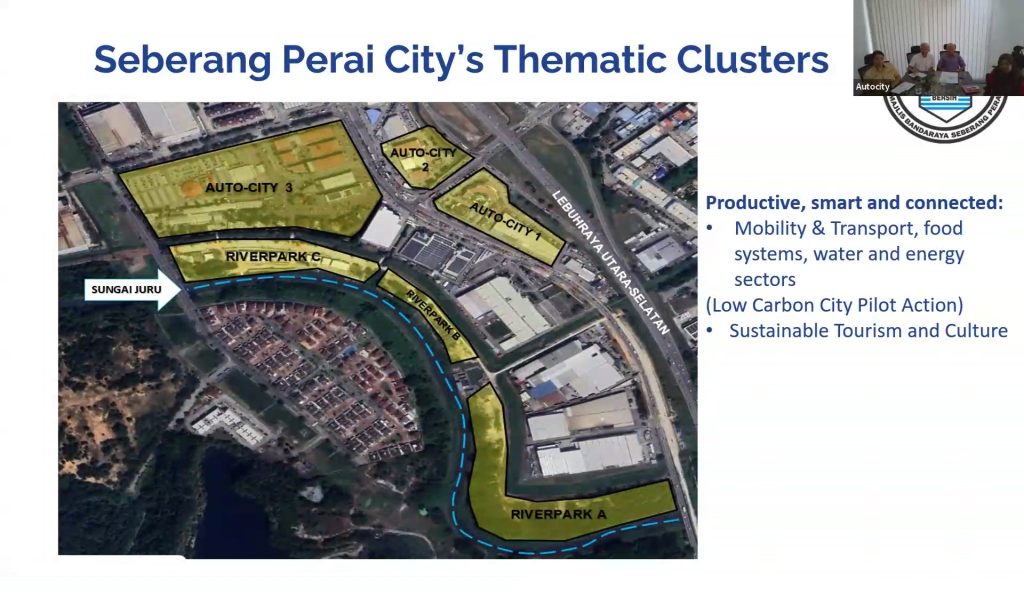
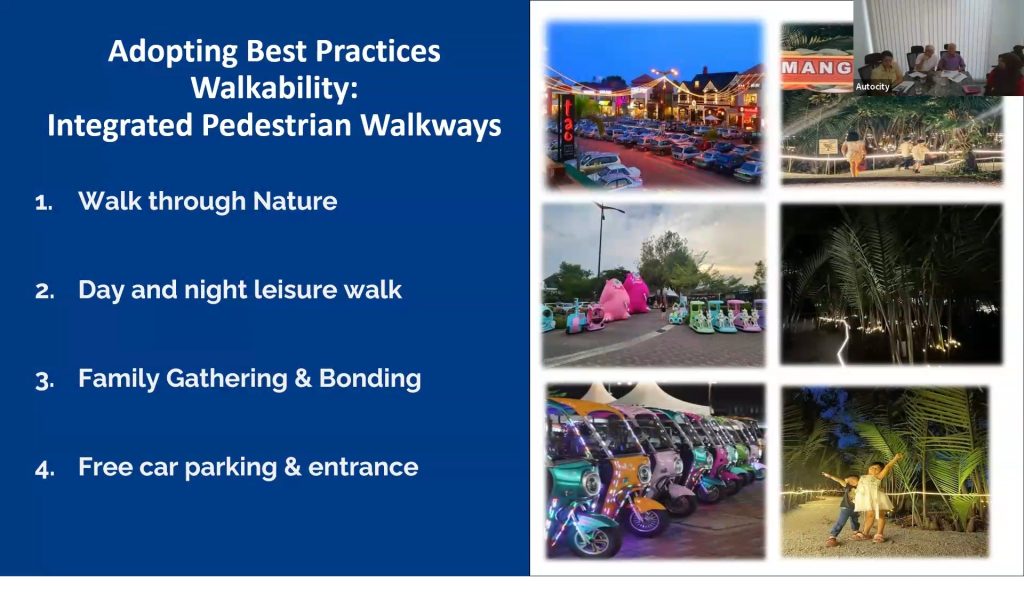
Both sessions ended with lively discussion rounds about shared mobility, affordability, safety, carbon neutrality, and citizens’ and business engagement.
